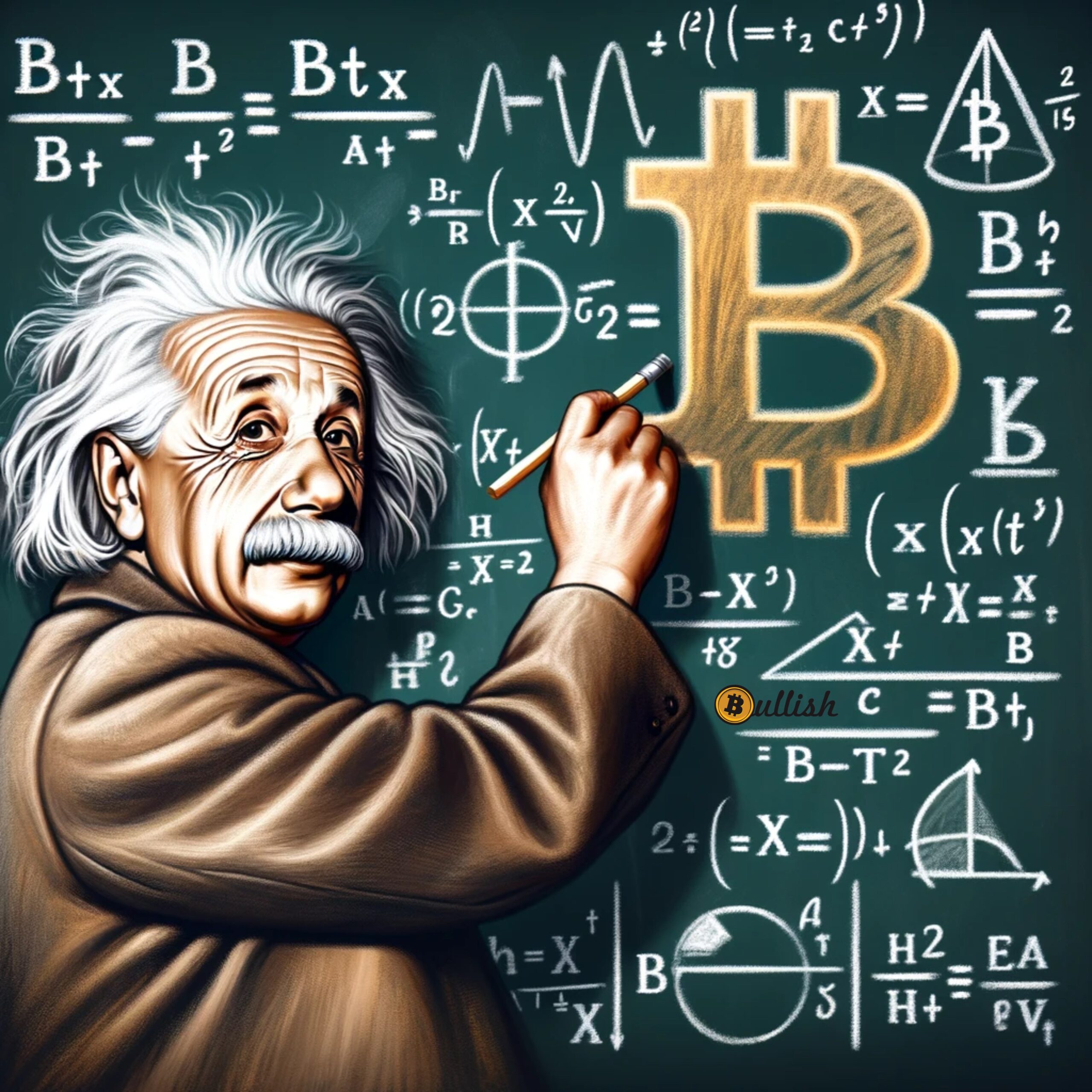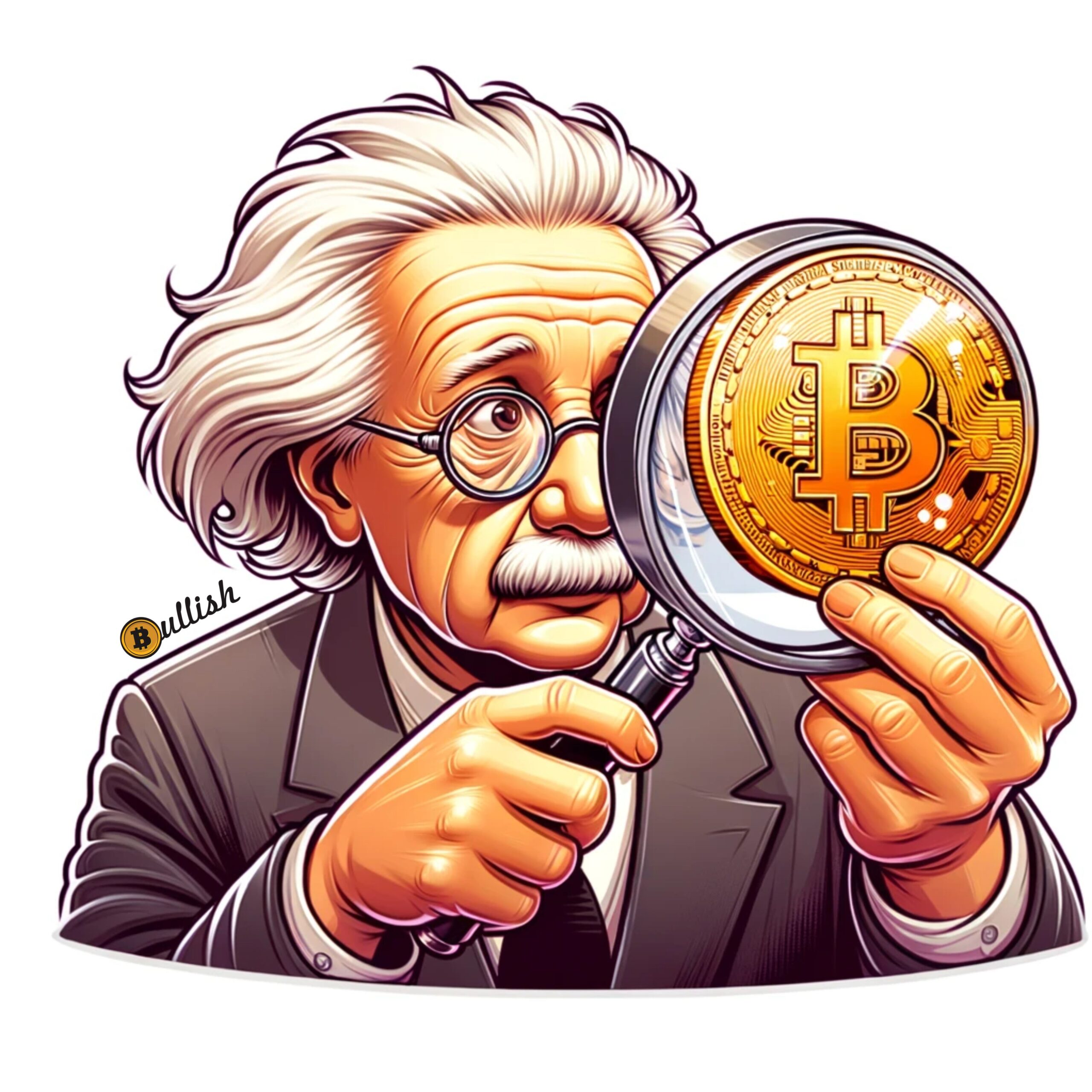
Albert Einstein:
The physicist who reshaped our understanding of time, space, and the universe, Einstein might view Bitcoin through the lens of relativity and interconnectedness. He could be intrigued by the cryptographic and mathematical underpinnings that ensure its security. Just as his theories revealed the fundamental laws of the universe, Bitcoin reveals a new way to understand value, trust, and the exchange of information in the digital age.

Albert Einstein’s Take on Bitcoin
Imagine, if you will, a world where the very fabric of currency is not woven by central authorities, but by the people themselves, much like the intricate dance of particles in the universe. Bitcoin, my dear reader, is akin to the cosmic phenomenon where energy transforms into matter. Just as E=mc^2 demonstrates the equivalence of energy (E) and mass (m), Bitcoin illustrates the equivalence of trust and value in a decentralized manner.
In traditional systems, banks act as the watchful guardians of transactions, ensuring that money flows correctly from one person to another. But with Bitcoin, this responsibility is not shouldered by a singular entity. Instead, every transaction is observed, verified, and recorded by a vast network of computers, much like how the universe operates under a set of consistent laws.
Now, one might wonder, how does this digital currency maintain its value? Much like how energy in the universe is finite, the number of Bitcoins is also limited. This scarcity, combined with its decentralized nature, ensures its value. It’s a symphony of mathematics, cryptography, and the fundamental principle of trust in a system where every participant plays a part.
In conclusion, just as my theory of relativity altered the way we perceive time and space, Bitcoin has the potential to revolutionize our understanding of money and trust. It’s not merely a currency; it’s a new perspective on the interplay of value, trust, and decentralization.


“Imagination is more important than knowledge. For knowledge is limited, whereas imagination embraces the entire world, stimulating progress, giving birth to evolution.“
-Albert Einstein
Related Articles

Bitcoin and the Future of Finance: From Double-Entry to Triple-Entry Accounting
Introduction: In the annals of commerce, the advent of double-entry accounting stands as a monumental leap forward in the way businesses record their financial transactions. This system, which meticulously tracks debits and credits across two separate accounts for...

Bitcoin vs. Gold
Why has gold been used as currency? Gold has been used as a form of currency for thousands of years because of its unique properties. One of the main reasons is that it’s scarce and difficult to mine, making it a valuable commodity. Additionally, gold is durable and...
Henry Ford’s Financial Vision and Nikola Tesla’s Machine Intelligence: The Convergence in Bitcoin
Introduction The dawn of the 20th century witnessed groundbreaking strides in industrial and technological advancements, primarily led by Henry Ford in manufacturing and Nikola Tesla in electrical engineering. While Ford revolutionized the automotive industry with his...
The Genesis of Bitcoin: Revolutionizing Digital Currency
Introduction: Bitcoin has emerged as a groundbreaking digital currency, reshaping our understanding of financial transactions in the digital age. Its creation by the enigmatic figure Satoshi Nakamoto marks a pivotal moment in the quest for a decentralized currency....
Bitcoin vs. Altcoins
What is an Altcoin “Altcoin” is a term used for any other cryptocurrency that does not include Bitcoin. Bitcoin was the first mainstream cryptocurrency on the market, but that’s far from the only reason for its success compared to all others. As Bitcoin grows in...







